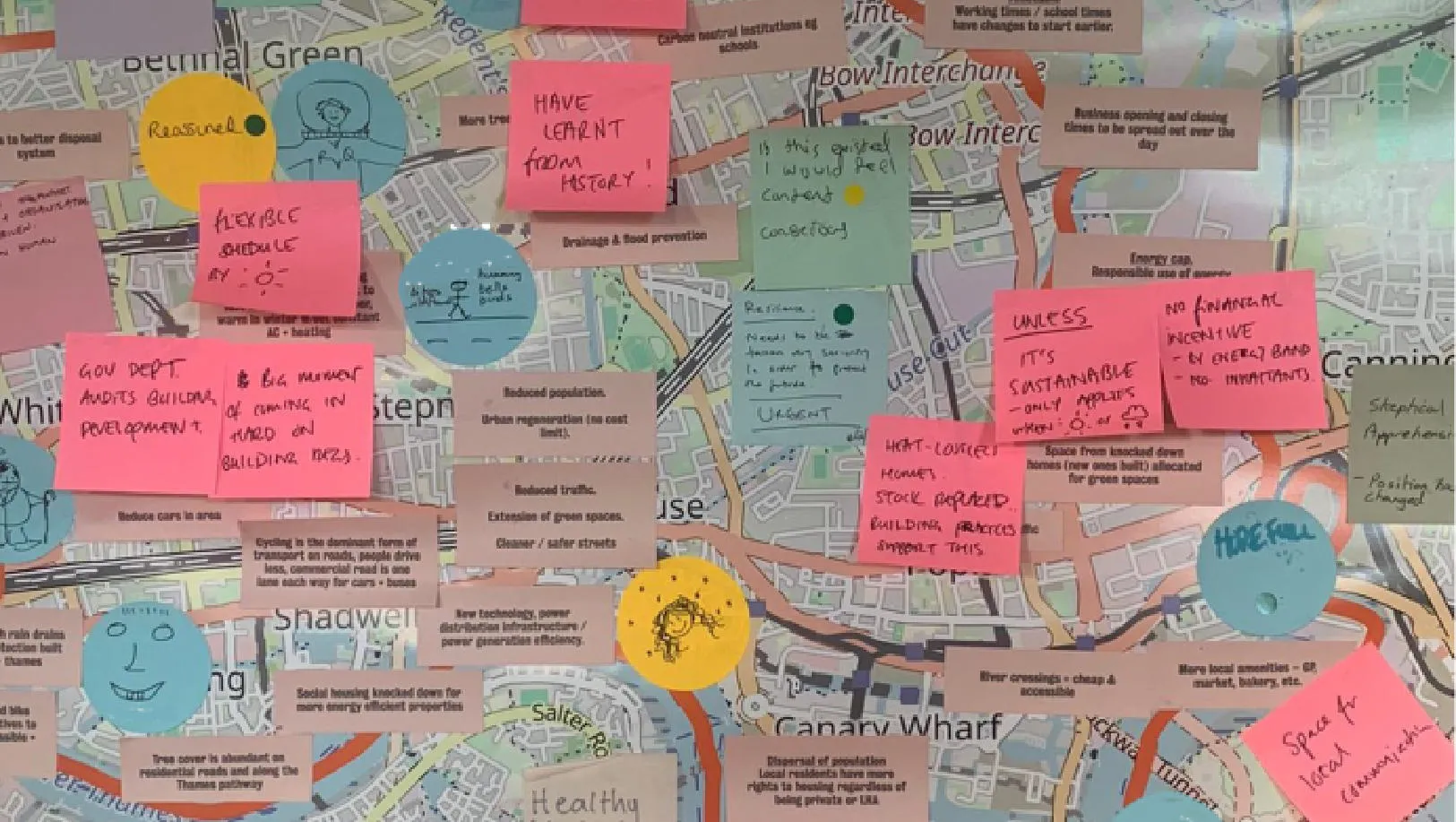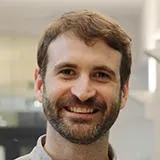Hopeful Futures

The Hopeful Futures project is focused on developing and testing tools to support more constructive and future-focused conversations on climate change in deliberative settings. The project explored the potential for integrating lived experience testimony and creative practice to support participants to deliberate on what a well-adapted London could look like by 2050, before working to define principles and prioritise policy options.
These tools were piloted across four workshops that took place at Science Gallery London in September-October 2024, bringing together 27 residents from the London Boroughs of Lambeth, Southwark and Tower Hamlets. We also worked with six peer researchers from these boroughs to document how they were coping with hotter temperatures across the summer months.
The project not only provides insights for deliberative practitioners, but delivers wider lessons for everyone engaged with the question of how to adapt to the impacts of climate change in a way that takes account of the needs and priorities of citizens.
The Hopeful Futures team brings together researchers and practitioners from across King’s, including the Policy Institute, the Department of Geography, King’s Culture, Science Gallery London, and Department of Political Economy, along with partners from London Councils, Policy Lab, climate teams from the London Boroughs of Lambeth, Southwark and Tower Hamlets, and artists Angela YT Chan and Jo Brinton.
This work is funded by King’s College London’s Climate and Sustainability Seed Fund.
Aims
- To test novel approaches within deliberative settings, to open up more hopeful, constructive and future-focused conversations about policy choices on climate change.
- To develop visions and priorities for what a well-adapted London could look like from local residents.
- To complement existing KCL investments using culture and creativity to engage the public on climate and sustainability, to open dialogues and set new research agendas with our local communities.
Methods
- Literature reviews: We conducted two literature reviews to inform the design of the deliberative workshops. The first explored arts-based interventions focused on climate change and the evidence of their impact. The second systematically identified different types of stimuli used in deliberative settings.
- Peer research: Across August 2024, six Londoners living in Lambeth, Southwark and Tower Hamlets documented life in London on hotter days. They produced photos, videos and diary entries that captured what they saw and experienced, interviewed friends and family members, and reflected on how their area might change if we continue to see hotter, drier summers. The peer researchers came together in a debrief workshop to share their experiences and identify common themes. The group’s collective findings were presented in person at the deliberative workshops by two of the peer researchers.
- Deliberative workshops: Our workshops aimed to generate hopeful, imaginative and future-focused conversations about the types of adaptive actions residents from Lambeth, Southwark and Tower Hamlets would like to see, to live well with climate change. We focused on exploring what policies should be prioritised locally over the short-, medium- and long-term to enable future generations to adapt well to the impacts associated with climate change. Expert presenters during the workshops included partners from the local authorities and London Councils, in addition to two peer researchers. The middle two workshops were led by artist Angela YT Chan. Angela collaborated with the research team to deliver workshops where participants creatively envisioned what their local borough might look like in a well-adapted future, utilising future visioning and speculative fiction.
- Roundtable: The roundtable stress-tested and refined ideas arising from the workshops, and how they can be operationalised by specialists working in climate change adaptation.
Our Partners

London Councils

Science Gallery London







